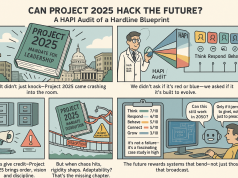In an era where flexible work arrangements are increasingly coveted, the gig economy has burgeoned into a formidable force within our labor market. Characterized by freelance, temporary, or independent contract work, this sector promises autonomy and the allure of becoming one’s own boss. Yet, beneath this veneer of freedom lies a less glamorous reality — one where many gig workers navigate a labyrinth devoid of the protections and benefits traditionally associated with employment. This disparity casts a glaring light on the urgency for advocacy and policy reform to cultivate an inclusive environment that advances diversity and equity.
As the gig economy mushrooms, its workforce diversifying by the day, the plight of workers often goes unnoticed. Minorities, women, and the disabled — demographics already grappling with systemic inequalities — are disproportionately represented in lower-paying gig segments, further amplifying social and economic disparities. The absence of a minimum wage guarantee, health insurance, and the right to unionize leaves these workers vulnerable to exploitation, with scant recourse in the face of injustice.
The vulnerability of gig workers is not merely a matter of individual hardship; it is a collective economic issue that demands robust policy interventions. Reform can manifest in various guises — from implementing minimum wage floors that insulate against financial precarity, to extending health benefits that safeguard against life’s unpredictabilities. Moreover, the recognition of gig workers’ right to organize and unionize could shift the power dynamics, enabling them to collectively bargain for fairer working conditions and wages.
Employers, lawmakers, and gig workers themselves each have a pivotal role to play in propelling these changes. While platforms that currently profit from gig work’s flexibility may resist such alterations, the long-term benefits of a stable, satisfied workforce cannot be overstated. Advoca犀利士
cy groups must therefore strive to bridge divides, working closely with policymakers to ensure the gig economy becomes a conduit of opportunity rather than a perpetuator of exploitation.
Historical retrospection reveals significant labor reforms often stem from economic advocacy. The implementation of the Fair Labor Standards Act of 1938, which established minimum wage, overtime pay, and child labor laws, serves as a testament to the power of persistent advocacy and policy engagement. Such milestones can inform contemporary efforts, underscoring the importance of relentless pursuit in the quest for social and economic justice.
To engender a more inclusive and equitable gig work landscape, stakeholders must embark on actionable steps. These include the fostering of partnerships between advocacy groups and legislators, the promotion of awareness campaigns highlighting gig workers’ struggles, and the formulation of targeted policy proposals that resonate with the ethos of fairness and inclusivity. By doing so, we can reimagine the gig economy not as a precarious gambit, but as a realm of boundless potential, affirming the dignity and worth of every worker within its fold.




























